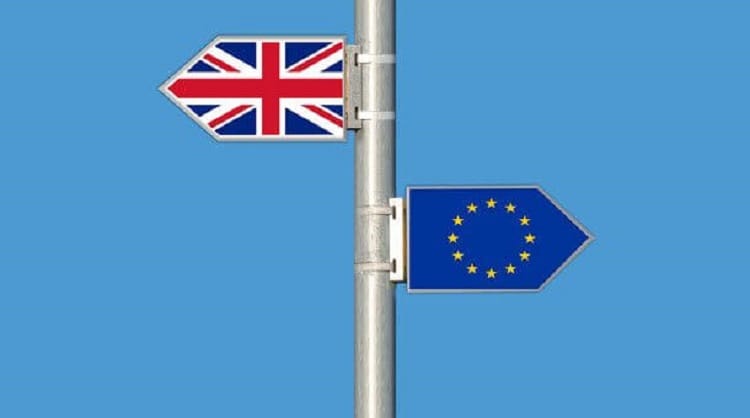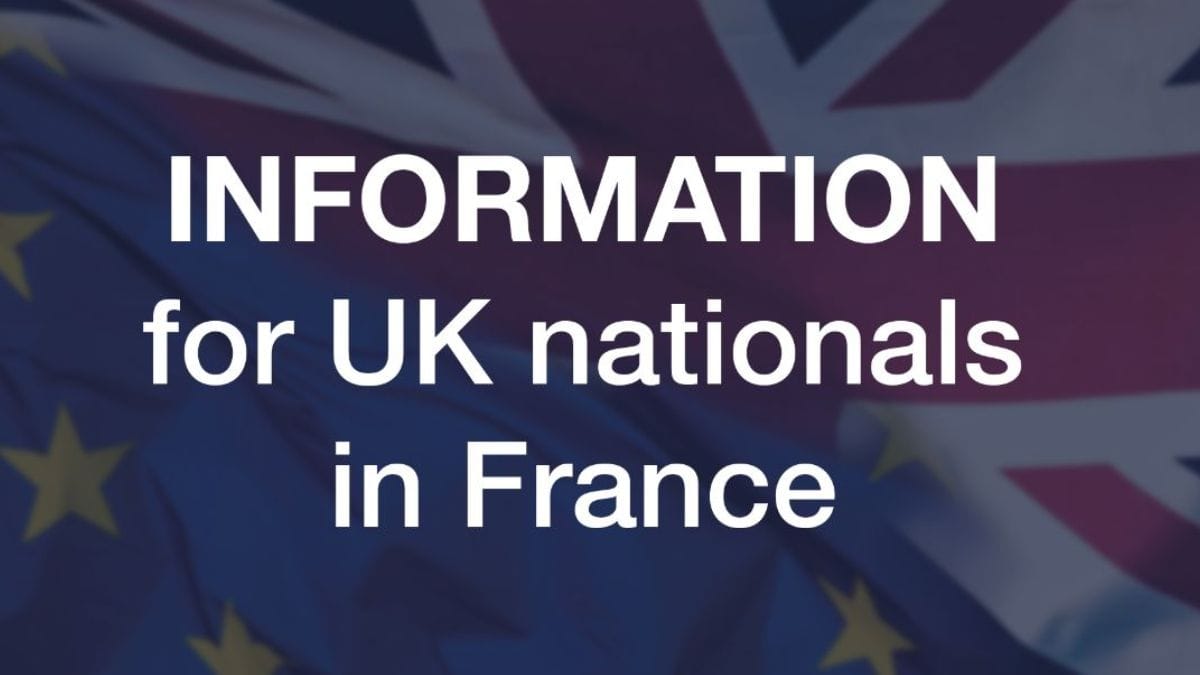British citizens remain the top priority for the Embassy and we are working to reach more and more UK nationals in France.
We do a lot of communication online — via the Living in France Guide, which always has the most up to date information we have on Brexit and what UK nationals will need to do to prepare; our monthly Facebook Q&A sessions which have reached over 120,000 people; and this quarterly email newsletter “Voisins Voices”.
We understand that not everyone is online so we’re also reaching UK nationals offline.
First, through citizens outreach meetings. These started in 2017 and have taken place across the country, with a focus on where most UK nationals live. We’ve now held over 70 meetings, with attendance from 10-400 people at each. These exchanges are not just a way for us to pass on information, but are also important to help us understand the issues that are of most concern to you and identify new issues that need to be addressed. We invite French local authorities to join us at these meetings so that participants can ask their questions directly to Préfecture staff where possible.
We advertise these meetings online, through GOV.UK and social media, as well as through local associations, expat media and the French regional press. We try to advertise meetings well in advance so that attendees can make plans, but if a last-minute meeting comes up in a particular area and we think we can hold an outreach meeting at the same time, we will always try to do so even if this means less notice. We know that this can be frustrating so we will re-double our efforts to advertise the longer term plan.
 Secondly, our Consular teams in Paris, Marseille and Bordeaux have a special focus on reaching vulnerable persons and are therefore working with numerous local associations, expat groups, and the French Mayors’ Association to raise awareness and share information. We’ve sent posters to hundreds of town halls, and we also ask people attending our outreach meetings to display them in their towns and villages. The Consular teams also work on individual cases. They have helped resolve several cases — you may have seen some of this in the press recently — and raised awareness across the French system to try to avoid similar cases in the future. For example, the Embassy has supported individuals in a small number of cases where orders to leave the French Territory (Obligation de quitter la France) have been issued in error or where residency applications have been refused for specific reasons. We also have a network of Honorary Consuls, who raise cases of vulnerable Brits in their communities.
Secondly, our Consular teams in Paris, Marseille and Bordeaux have a special focus on reaching vulnerable persons and are therefore working with numerous local associations, expat groups, and the French Mayors’ Association to raise awareness and share information. We’ve sent posters to hundreds of town halls, and we also ask people attending our outreach meetings to display them in their towns and villages. The Consular teams also work on individual cases. They have helped resolve several cases — you may have seen some of this in the press recently — and raised awareness across the French system to try to avoid similar cases in the future. For example, the Embassy has supported individuals in a small number of cases where orders to leave the French Territory (Obligation de quitter la France) have been issued in error or where residency applications have been refused for specific reasons. We also have a network of Honorary Consuls, who raise cases of vulnerable Brits in their communities.
Thirdly, we try to work through the media at key moments in the Brexit process and provide information to expat media such as The Local and The Connexion. In March and April this year we ran adverts on the BBC website in France and broadcast messages on over a hundred English-speaking podcasts popular with Brits in France.
Finally, we have discussed the need for widespread and accessible communications with the French government and are expecting official French government information to be publicised when Brexit happens. As soon as that happens, we will amplify those messages through all Embassy channels. In the meantime we have translated several of their documents, which are available on the Living in France guide, and we are expecting an English version of their brexit.gouv.fr website to be available soon.
BUT we want to hear how we can best reach you. Are you worried about friends and neighbours who aren’t aware of what they will need to do after Brexit? How do these people get their news? Given the size of the country and the spread of the British community in France, what kind of approach would work best to get the information out as effectively as possible?
Please do encourage your friends to sign up to the Living in France Guide and to the mailing list for this newsletter.



 Secondly, our Consular teams in Paris, Marseille and Bordeaux have a special focus on reaching vulnerable persons and are therefore working with numerous local associations, expat groups, and the French Mayors’ Association to raise awareness and share information. We’ve sent posters to hundreds of town halls, and we also ask people attending our outreach meetings to display them in their towns and villages. The Consular teams also work on individual cases. They have helped resolve several cases — you may have seen some of this in the press recently — and raised awareness across the French system to try to avoid similar cases in the future. For example, the Embassy has supported individuals in a small number of cases where orders to leave the French Territory (Obligation de quitter la France) have been issued in error or where residency applications have been refused for specific reasons. We also have a network of Honorary Consuls, who raise cases of vulnerable Brits in their communities.
Secondly, our Consular teams in Paris, Marseille and Bordeaux have a special focus on reaching vulnerable persons and are therefore working with numerous local associations, expat groups, and the French Mayors’ Association to raise awareness and share information. We’ve sent posters to hundreds of town halls, and we also ask people attending our outreach meetings to display them in their towns and villages. The Consular teams also work on individual cases. They have helped resolve several cases — you may have seen some of this in the press recently — and raised awareness across the French system to try to avoid similar cases in the future. For example, the Embassy has supported individuals in a small number of cases where orders to leave the French Territory (Obligation de quitter la France) have been issued in error or where residency applications have been refused for specific reasons. We also have a network of Honorary Consuls, who raise cases of vulnerable Brits in their communities.